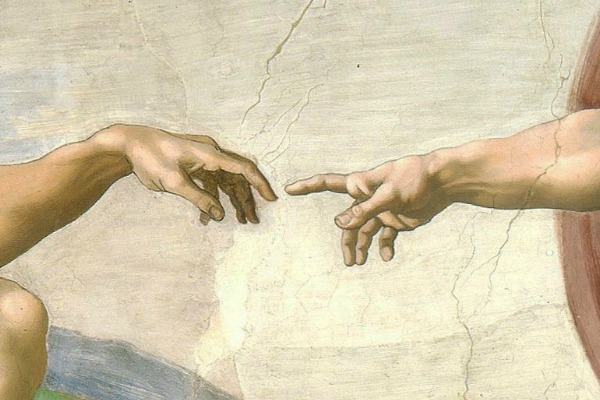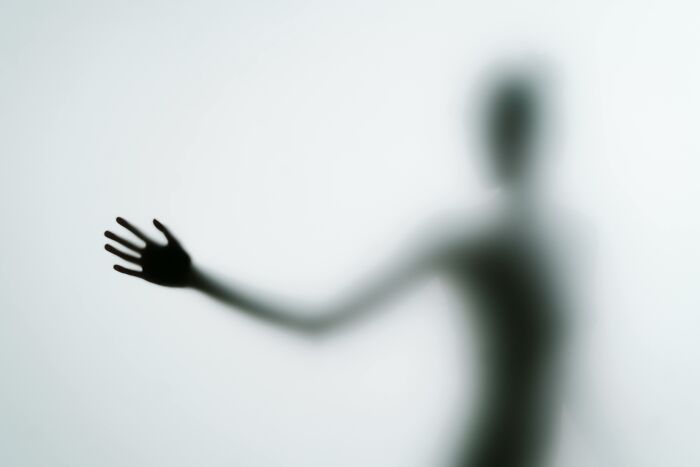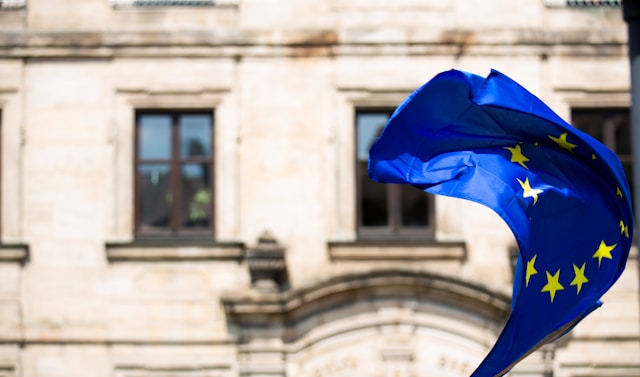
Kenan Camurcu
When Özlem Zengin's name is mentioned, it's not our fault that the caricature comes to mind of her shooing her party's group out of a meeting during her turn as Group Deputy Chair in the Turkish Grand National Assembly (TBMM). Her directing the MPs to the door with both hands also frequently led to jokes in political science classes where the professor explained Foucault's "pastoral power" shepherd-flock metaphor. If we were to take it a bit more seriously, it could even be seen as an experimental performance to help ordinary people understand the issue. But now, she will come to mind with an attempt to describe and distort a case so grave it paralyzes the reflex to smile, all to legitimize the power that lays out all sorts of benefits before them. She will be remembered for her ominous hermeneutical attempt to argue that the deaths of tiny children, who lost their lives while trying to warm themselves in a shack serving as a makeshift home, should not be linked to money [poverty].
We thought they wouldn't go beyond the atrocity of saying, concerning children who were raped, "One instance cannot be a reason to blacken Ensar Foundation's name." We were wrong; the political elites of institutionalized Islam know no bounds in their wickedness.
First, let's not trivialize them by statistically coding them as "five children." They all have names: Fadime Nefes, five years old; Funda Peri, four years old; Aslan Miraç, three years old; Masal Işık, two years old; Aras Bulut, one year old. They tragically departed from life, their life clocks ticking in misery before they even had a chance to decide about their lives, right before the eyes of the powerful establishment, equipped with religious authority to subdue society and oppress dissidents, and their God. If we look at it through the understanding of the philosopher-priest Gunjevic, they are the unfortunate and victimized wretches of a condition where God, bound by His own rule of non-interference, suffers because of this (Žižek & Gunjevič, The Suffering God, 2012). In contrast, in the peculiar explanation of Islam, their birth into deprivation, even of basic necessities, is deemed a test. For both them and their parents. Those who shout this interpretation loudest to the poor are prosperous Muslims who have no experience of want or deprivation in their lives. Surely, some cold-blooded monster must have uttered the ominous cliché: "When they grew up, they would have been sinners, even infidels, in that life; they are actually lucky to die before their sins started being recorded."
Wealthy Muslims, who thank God for showering them with blessings, believe that the same God tests the poor with poverty and exhort them to patience. Those who stuff their bellies and have no lack in their lives promise tons of food and infinite wealth in the afterlife to the hungry.
There's no need to repeat that Islam is not a religion to aspire to.
We mentioned it before: Islam is not actually a belief. On the contrary, it is the secure area, the outer perimeter, necessary to be a believer/faithful/pious. Under the conflict-ridden conditions of Hijaz, the fundamental condition of the new faith was to join a peace pact. Being Muslim (submission/Islam) was something like Pax Romana. War and conflict would end so that people could achieve a state of security to contemplate faith. Muslim and mu'min (Quran 49:14) are two separate categories for this reason. The Islam we are witnessing, however, is far from even its historical meaning. As the Iranian philosopher Daryoush Shayegan, whose mother was Georgian and father Turkish, like my humble self, said: "Radical Islamists squandered the immense spiritual capital accumulated by Islam over centuries in the ultra-modern casino of history."
Contemporary Islam is like the entrenched religion in Mecca where the Prophet [truth] was persecuted. It represents oppression, discrimination, and the worship of power and wealth. The Prophet rejected the conservatism led by Abu Sufyan, the representative of that religion which ascribed itself to Abraham, and declared himself to be of the Hanif religion (Quran 30:30). Those who abandon the dominant religion are doing the same now. The line on the graph showing the escape from the dominant religion is steeply rising. In the foreseeable future, we may witness a "wave after wave" breaking away from Islam.
Anyway.
Since this is not an ad hominem piece, let's note from the outset that the name "Özlem Zengin" is used to represent the conservative universe. Her provocative outburst likely created anger in Beştepe (the Presidential Palace) as well, and she probably received a reprimand for the new crisis she caused. Indeed, different spokespersons will try to close the rift she opened. But none of this changes the reality. Zengin's insensitivity and indifference, verging on sociopathy, are the very essence, the normal state, the character category of political piety. While some manage to escape such situations with their mastery of wearing a mask, they are nevertheless complicit in the crime.
As is known, Zengin was very angry with those who attributed the deaths of five children in a shack fire in İzmir to poverty, and she stated that there were "other things" involved. We know that those "other things" implied that the issue was actually about morality. Her definition of morality refers to the ostentatious behaviors of the socio-cultural and political identity represented by the headscarf she wears. The morality in question has no relation to high values such as justice, fairness, honest earnings, equality, compassion, decency, or common sense. So, according to this comparison, the children's mother, even though she struggled in the depths of poverty while the powerful and prosperous Islamists reveled, is guilty because she did not adhere to the conservative's Islamic morality.
In her speech in the TBMM, she beat around the bush, minced her words, meticulously avoided eye contact with anyone. When the moment came to say what she really meant, she straightened her headscarf as if rolling up her sleeves and blurted out that the cause of the children's deaths was not poverty, but those "other things" (lack of morality?). It was a terrifying moment.
Of course, that's not true. It was poverty that tore the children from life, and poverty is not an anonymous evil like when we say "traffic monster." It has an agent, and a fully culpable one at that. Poverty is the Chekhov's gun hanging on Turkey's wall, ready to explode at any moment. Even if the shack children in İzmir could have continued living in that poverty, they would have already died civilly, if not physically, on the stage of life.
Never mind how inverted Islam views it; the truth is what Hazrat Ali said: "The desolation of the earth is from the poverty of the people. And the poverty of the people is from the plunder of wealth by rulers who do not trust in the future of their authority and do not learn from that which should serve as a lesson." (Ibn Abi al-Hadid, Sharh Nahj al-Balagha, 17/54).
The conservative sociopathy, whose indifference to the existence of poverty and deprivation in the real world is unquestionable, does not provide a formula for how the morality it defines will help the deprived escape from a shack-like existence and making a living by collecting trash. But perhaps what is implied is that no matter how impoverished they are left, the deprived will cling tightly to the rulers' religion, obey conservative elders, and not object or rebel. This is analogous to the strangeness in Mecca where slaves never left the religion of their master Abu Sufyan, and even at times stoned the Prophet who promised them freedom.
Can the mother targeted by Zengin and the other institutionalized Muslims on her side be accused of not choosing religion as an opiate to soothe her pain in a heartless world?
I was on the committee that planned the first mass reaction against the headscarf ban at the university in 1985, the famous Beyazıt protest; so I'm quite senior. The evolution of the headscarf from a symbol of victimhood to a symbol of tyranny in such a short time is, for me, the most surprising phenomenon in political history.
Now we understand very well the difference between Hind, who chewed on Hamza's liver with her head covered, and Fatima, Hamza's female counterpart, who also had her head covered. Fatima, at the foot of the Ka'ba, paralyzed the polytheistic elders who had animal filth dumped on her father's head, as well as Caliph Abdullah ibn Abi Quhafah and his supporters, the founding fathers of the "new Medina" where Islamic autocracy began, with her speech on justice (Ibn Tayfur, d. 893, Balaghat al-Nisa 16-25). We understand the headscarf as a symbol of oppression versus the headscarf as a symbol of justice by their stance against power.
They don't need religion to discipline themselves. On the contrary, because they have made it an ideology of domination over others, they recognize no binding moral principles for themselves. It's enough for religion to serve the purpose of maintaining a debauched, disgraceful, base life, devoid of morality. In the world of these "Muslims," cases of fairness are just romantic stories. They narrate and transmit them, but never incorporate them into their lives. They gain power, gather supporters, and make money through those stories. The reality of their lives, however, consists of lies, hypocrisy, opportunism, deceit, and evil.
You're completely justified in cursing the arrogant, corrupt, and pampered (profligate: Quran 17:16) elites, spiritual bankrupts who have removed the concept of 'lack' from their life's vocabulary and erased the word 'poverty' from their lexicon, thanks to their lavish lives built with the nation's money by exploiting their power to the fullest, while continuously lecturing the poor that sustenance comes from Allah. Of course, Allah does not condone cursing, except for those who are oppressed; He specifically exempts them (Quran 4:148).
The personnel of political Islam, the conservatives, greatly adore the literature concocted in the name of the autocratic Caliph Omar ibn al-Khattab, with his whip (Ibn Khallikan, Wafayat al-A'yan, 3/14), which claims, "If a wolf takes a lamb by the bank of the Euphrates, Allah will ask Omar about it." Yet, they do not adhere to the ethical values they themselves invented. In the middle of Turkish cities, countless lambs suffer untold misfortunes, but the powerful Islamists don't bat an eyelid. They feel no obligation, no guilt, no sorrow, and take no action.
With the advent of Özal's "merchant politics" in the 80s, empathy began to dry up. The 90s saw a homopolitical invasion. In the 2000s, the country became a cadaver with full-time religiosity. It's clear that escaping this cannot be achieved through political reshuffling. The late Aliya Izetbegović correctly identified: "The solution is not political, but cultural. It is a arduous and lifelong path, but it is the only path. No one has found a better path to date."
The essence of opposition politics is to shout "Fekku Raqabah" (Quran 90:13), "Break the chains!" at the top of one's lungs for the poor, the oppressed, the deprived, the victimized, without letting one's language become hesitant and cowardly, without paralyzing it with exceptions and "buts." Everything else is part of the game.
The Prophet's close companion, Abu Dharr, the architect of today's conservatives' religion, stood against Muawiyah, who had Islamicized his opulent palace life, and rebuked him: "If your expenditures are from Allah's property [the treasury], it is treachery. If it is from your own property, it is extravagance, and thus forbidden." (Baladhuri, d. 892, Ansab al-Ashraf, 2/168). Let's remember the AK Party spokesperson and actor who spoke about defending the rights of the nation caught in the vortex of poverty while wearing a luxury watch worth half a million liras. When exposed, he started giving interviews making sure his shame was contained within his sleeve. The conservative's belief is not a spiritual experience, but a political identity.
It is a privilege of the institutionalized Islam that fermented in Muawiyah's Damascus for the arrogant, whose vocabulary of life contains no "lack," to give advice on living with nothing to the mustazaf (oppressed) whose lives consist solely of want and deprivation. This discredited religion and religiosity have not a single word to say to humanity.
The late Ali Shariati described it: On one side, beginning with the Prophet, the impoverished piety of Ali, Ammar, Salman, Abu Dharr, and others in life and death. On the other side, the piety of those who started from scratch like everyone else in Medina after the Hijra and ended up ultra-rich.
According to the famous historian Mas'udi's (d. 956) record, after the migration to Medina, Hazrat Ali's possessions were nothing both during the Prophet's time and at his own death. For example, Zubayr b. al-Awwam, who fought against Ali in the armed uprising incited by Aisha, daughter of Caliph Abu Bakr (Basra/Battle of the Camel), initially had a simple house, but when he died, he left behind a thousand horses, a thousand slaves, 50,000 dinars, and houses in Basra, Kufa, and Alexandria (Muruj al-Dhahab, 2/367). Abdurrahman b. Awf, glorified by Sunni Muslims with the title "companion promised paradise," answered the question of why he was so keen on worldly possessions thus: "During the Prophet's time, we were tested with hardship and persevered. Now we are tested with ease and cannot persevere." (Baghawi, d. 1122, Sharh al-Sunnah, 14/263).
Institutionalized religious culture chose historical figures addicted to wealth as role models, not Ali. Ali, who started life as the son of a wealthy father and then became the chosen leader of the community, yet departed life in poverty like the Prophet, was romanticized and made the hero of emotional narratives.
This is the kind of Islam that has allowed over 30 dollar billionaires from Turkey to join the ranks of nearly 700 dollar billionaires worldwide, and the number of millionaires to increase by 512,000 in the last year. The cost of this dystopian economic adventure is over 25 million people falling below the hunger line and 50 million starting to live below the poverty line. Furthermore, 2.5% of the population is undernourished. The child poverty rate is 22.4%. Turkey is the second country in the world with the highest child poverty rate. The masters of turning every crisis into an opportunity, the fundraisers, can now stop using images of Africans to meet their visual material needs while announcing IBANs on billboards. There are enough such images in their own country.
Since 2003, I have been trying to analyze the rude, cruel, merciless, and savage formation of conservative/Islamic capitalism, the transformation of Muslim political agnosticism into theological agnosticism, and grotesque worldliness, etc. But the explosive increase in the number of millionaires and billionaires under conditions where poverty has become widespread and structural could not have been foreseen by anyone.
Now they are trying to introduce a law called "agency of influence" to stop objections before they are even uttered. Like in Khamenei's regime, its Shiite counterpart, they will accuse every opposition and exposé of espionage. In Iran, the regime executes people summarily after sham trials. Turkey hasn't gone that far off the rails yet, but they imprison people for years under harsh conditions as a method of killing without taking lives. Without feeling any obligation to prove the crime. The tyrannical regime has kept Mir Hossein Mousavi, the legendary leader who served as prime minister during Iran's war, imprisoned with his wife in a house converted into a prison for 15 years without trial. Misbah Yazdi, the ringleader of the religious reaction whom Khamenei praises to the skies, said, "Actually, his punishment was death, and even by execution several times. He should thank the Leader's mercy."
They held Mousavi responsible for acts of vandalism during the protests, such as breaking store windows and burning tires on the streets. But without trial. Moreover, there is strong evidence that the regime orchestrated that vandalism using common criminals from prison. Revolutionary Guards General Hossein Hamedani, who was killed in Syria, proudly recounted this method, which they frequently resort to. Ahmadinejad also revealed that in the 2009 protests, common criminals were released onto the streets and carried out acts of arson and destruction under state protection, for which protesters were blamed.
No one should be grateful that Turkey hasn't yet reached the level of Iran. We are in the incubation period of Talibanism, and evil happens in an instant. The series The Handmaid's Tale, which tells the story of the former American republic transforming into the Gilead religious state, describes how women were gradually forbidden from education, reading books, having professions, and participating in other areas of social life, as recounted by June Osborne. She attributes the outcome to the heavy price of their initial dismissal of small hindrances as insignificant. This is a film script, of course, but it's not fictional. There are concrete examples like Afghanistan, Iran, Aceh Sumatra, and potentially, in the future, Turkey.
Iran and Turkey, in both, Muslim rule is a perfect disaster. As the Queen of Sheba said to Solomon, "Indeed, kings, when they enter a city, corrupt it and make its honored people humbled" (Quran 27:34), so too are the power-hungry Muslim entities of today. When they seize power, they devastate the country, break the pride of the people, rot capacity, and kill potential.
The phrase "let the adhan not be silenced," which bursts from their throats at every criticism, is the slogan of an institutionalized metaphysical belief that has exiled God from this world. Yet, the adhan was not silenced thanks to the liberation of Bilal, the hungry, enslaved, poor individual who recited the first adhan of Islam, from hunger, slavery, and poverty. If there are hungry people, it means the adhan is already silenced. What significance does a voice rising from the minaret's loudspeaker have after people starve and the apocalypse erupts?
In 2023, I watched Netflix's documentary The Lost Children with tears in my eyes, which tells the story of the rescue of four small children from a plane crash in the Amazon rainforest in Colombia. What overwhelmed my emotions was not only the discovery of the children alive after 40 days of searching in uncharted parts of the Amazon but also the unwavering determination, resolve, perseverance, and sacrifice of dozens of volunteers and soldiers dedicated to saving them. They plunged into the dangerous forest, saying, "They are Colombia's children. We won't return without finding them." Even though many had to leave due to illness, a small number of heroes continued the search despite their ailments. Here, in İzmir, in the middle of the city, five children burned to death in the bottomless pit of poverty, right before the eyes of tens of thousands of ultra-rich individuals, from the very top of the political hierarchy downwards. No "They are Turkey's children" sentiment or compassion was heard from any branch of Islam. Nor did they utter a single word against the denial of the power they lined up behind, saying, "Don't attribute everything to money." Turkey is a country where children and women are raped and killed in plain sight of the state. Until children and women are safe, a tear drop should be added to the crescent and star on the flag.
While children, shackled by suffering in the hell of poverty, struggle for survival in makeshift homes they consider shelters, Islam continues to sink millions of liras into raising concrete places of worship. Desolate mosques where not even a single row is filled. Structures that emulate temples, which they sanctify with the false attribution of "House of Allah." If there is a "House of Allah," is it the opulent temples collapsing under decorations, or the shack that became a grave for five children struggling to sustain a makeshift life?
The Prophet was asked, "Where is Allah?" He replied, "In broken hearts" (Bihar al-Anwar, 73/157).
Translated by Gemini





0 Comments